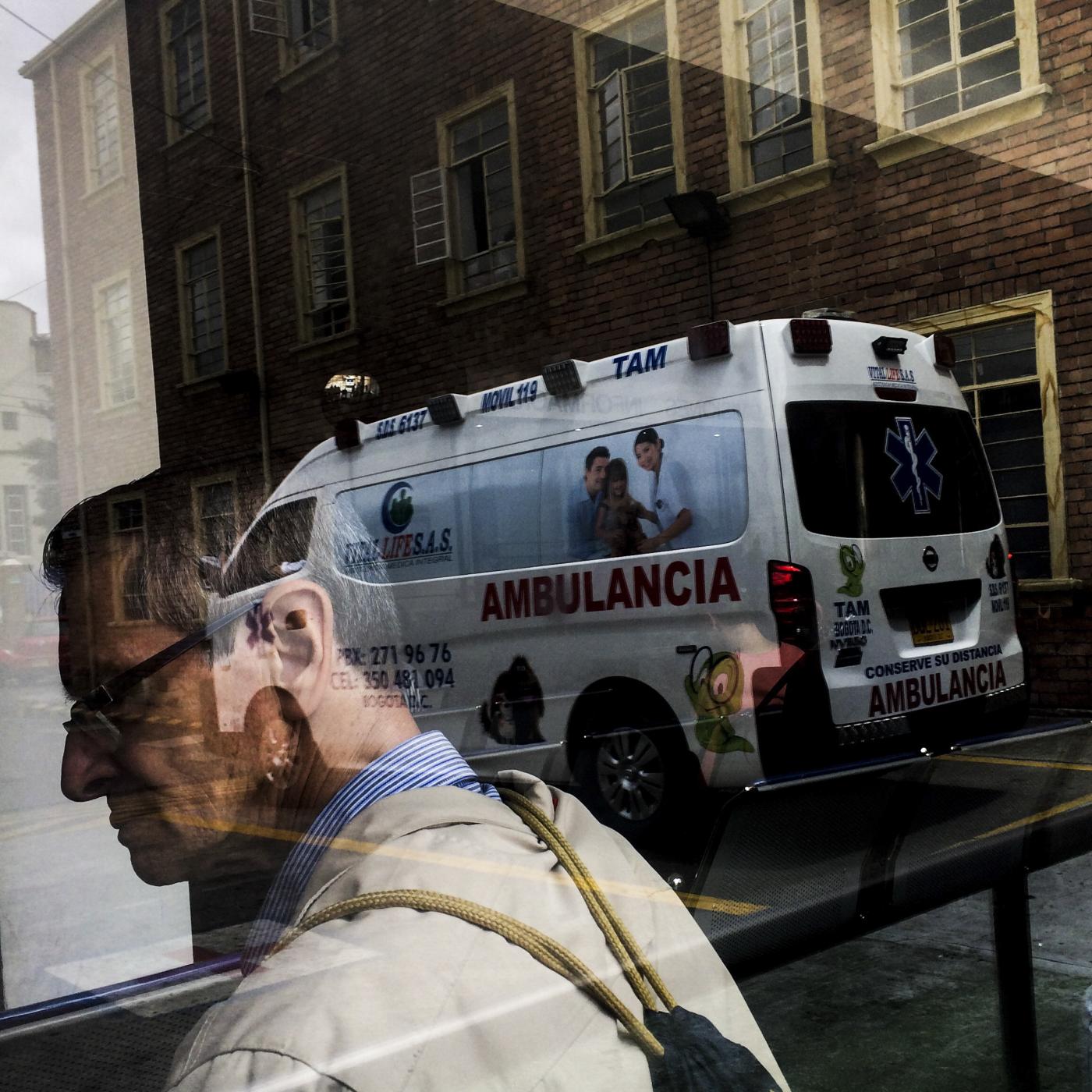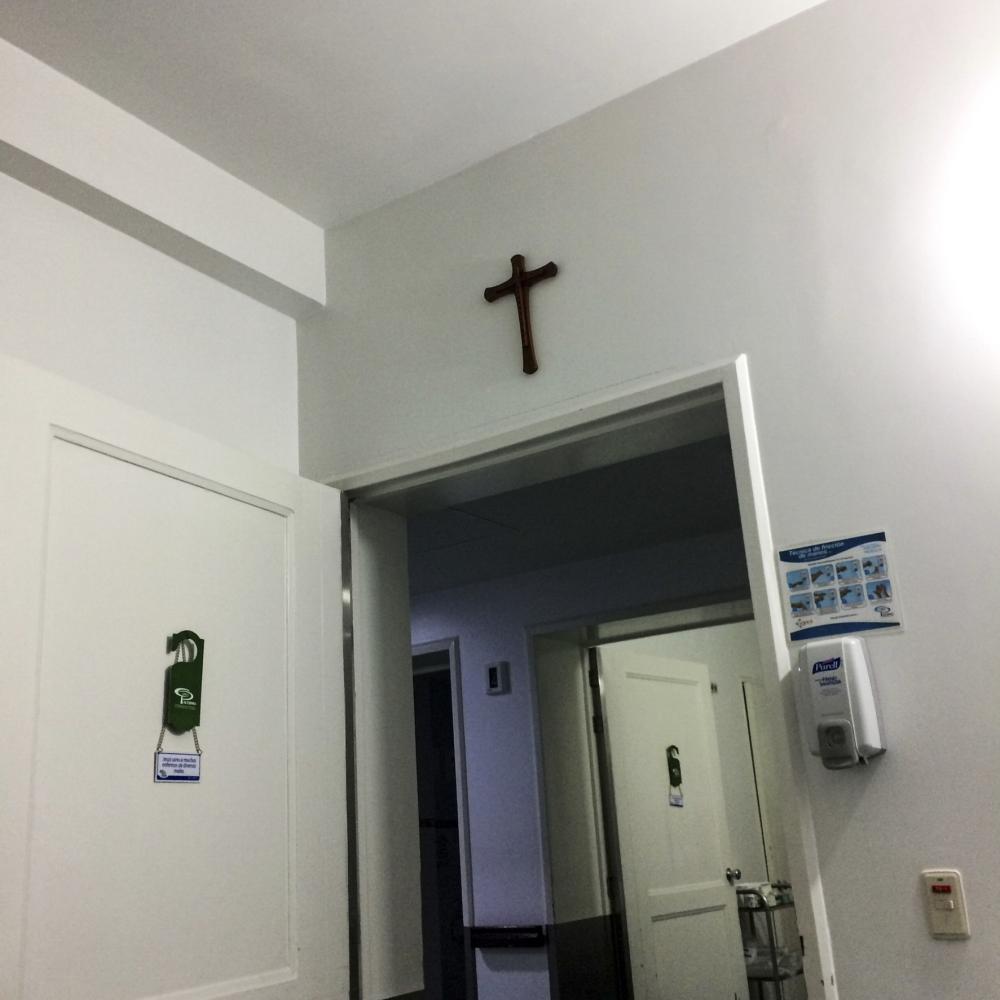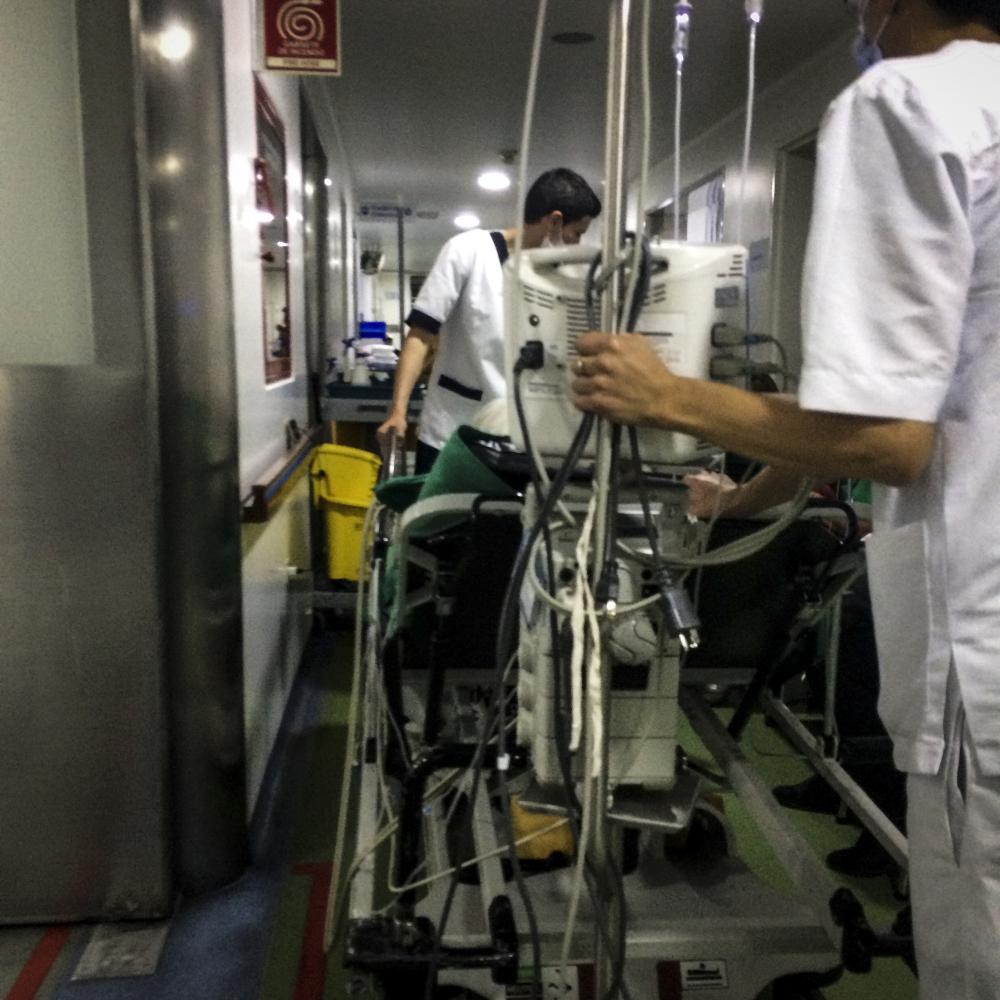Public Project
2018 - El ultimo Suspiró
Cuando yo cumplí 11 años nació mi primer hermano –Santiago–, pasados dos años nació el otro –Andres–, mi padre volvió a criar un recién nacido a sus 45 años. Y yo aprendí a cambiar pañales y a hacer teteros apenas entraba a la pubertad. Su barba empezaba a tornarse un tris blanca y en su cabello ya había unos brillos blancos que más adelante se prolongarían en su totalidad. Papa fue un padre ejemplar, responsable, fumador a veces compulsivo, buen sentido del humor y coqueto por naturaleza… insaciable trabajador, –no podía quedarse quieto–. Dio a sus tres hijos el mejor ejemplo, para El, siempre el trabajo fue una prioridad y nos inculcó siempre trabajar duro para alcanzar nuestros sueños –sabias palabras del viejo–.
Podría escribir hojas enteras contando anécdotas familiares y personales, nadie se imaginó que a los 60 años nuestro padre tuviera un cambio tan drástico en su vida. El cigarrillo, el alcohol, el azúcar y hasta los fierros de hierro que cargo por tanto tiempo le pasaron cuenta de cobro –cinco años largos de agotable sufrimiento–. La salud de mi padre a esa edad no fue la mejor, ya sus brazos no eran tan fornidos como mis recuerdo de niño, ya sus piernas no funcionaban como antes y ahora depende de muchas personas para poder hacer lo que antes prefería hacer solo. La relación con sus hijos no fue la mejor, los adolescentes menores no entendieron ni lidiaron las chocheras que le llegaron al viejo con sus achaques de enfermedad y por supuesto, con la edad, pero es entendible ni yo en ocasiones lo comprendí. Claro esta, durante sus días críticos en el hospital, jamás estuvo solo. Todos estuvimos allí. Mama, nos dio la mayor muestra de amor profundo y real, es la mujer mas fuerte que conozco –no porque sea mi madre, sino porque durante cinco años entrego su vida entera a ayudar a nuestro padre, a entenderlo y amarlo incondicionalmente–.
La muerte es algo natural, desde que somos niños entendemos de la naturalidad del fin de la vida, es mas desde esa época, nos inculcan creencias religiosas sobre la existencia del mas allá, del cielo y del infierno, del comienzo de una nueva vida después de la muerte. La muerte a pesar de estar en nuestro inconsciente, resulta estar tan lejana que la perdemos de vista, parece no tocarnos, no afectarnos tan directamente. Como un manto que te va tapando, día tras día la muerte se va conjugando con la enfermedad, va tomando fuerza cuando el cuerpo ya no tiene como defenderse. La luz se va haciendo a un lado y la sobra parece apoderarse de los cuerpos enfermos –muchas veces mi padre me dijo que estaba cansado, a lo que no supe contestar las primeras veces–. Cuando el cuerpo empieza a despegarse del alma y el espíritu, cuando el cansancio se apodera de nuestra mente todo empieza a colapsar, la enfermedad para, pero se traslada, parece desaparecer, pero se activa con mucha mas fuerza. Es duro ver a un hombre que fue tan fuerte, que nunca se quejo de nada, un literal roble, estar consumido por el cansancio, estar en una cama quejándose, consumiéndose por la oscuridad. A los 65 años la muerte le gano la partida a nuestro padre, dejo de luchar una batalla que peleo durante cinco largos años. La oscuridad se apodero de los días, y el olor de las flores que cubrían su ataúd se apodero de mis recuerdos por muchos días. Nadie se imagina el vacío tan grande que deja un padre, me imaginaba viejo al lado de mi padre, imaginaba un tipo canoso y arrugado alzando a sus nietos, tal vez un amargado rabiando con ellos o tal vez un alcahuete dando consejos sabios. Papa se marcho, nadie sabe para donde, ni tampoco si a mejor vida. Se fue de este mundo para convertirse en algo que desconocemos, o simplemente dejo de ser. Dicen que alguien muere cuando lo olvidan y entonces nuestro padre tendrá vida eterna pues a pesar del dolor que nos dejo, lo recordamos por cada buena cosa que hizo, por cada enseñanza o cada consejo, por cada cosa que sin darse cuenta nos dio una gran lección.
Este trabajo es una catarsis personal, una manera de desahogar el dolor de ver un padre enfermo, una manera de plasmar el dolor y mostrar lo complicado que es la enfermedad, también un homenaje a su vida y obra y una manera de plasmar lo que la familia siente, sintió y sentirá. También es una manera de inmortalizarlo, de contar su historia para que no ser alcanzado por el olvido.
We grew up in a humble home and from a very young age we saw dad work long hours during the week. He left the house before dawn and sometimes came back when we were asleep –as is normal in most Colombian homes–. On Friday fortnights, the beer did not wait, I woke up my mother at dawn to serve her broth and thus be able to deal with the drunkenness, my father drank his drinks, but we never lacked anything at home. Papa was a short but stocky man, he had big, muscular arms formed by the irons he worked with and beautiful green eyes that none of us inherited. We had a childhood absent from television and on Sundays if we used to go out as a family to the park to eat on the grass and play soccer, my mother, a lousy goalkeeper, followed our lead and joined the game... that's how her three children spent their childhood, naive and healthy with mom and dad.
When I turned 11, my first brother was born –Santiago–, after two years the other was born –Andres–, my father returned to raise a newborn at 45 years old. And I learned to change diapers and make baby bottles as soon as I hit puberty. His beard was beginning to turn a tris white and in his hair there were already some white highlights that later would be prolonged in its entirety. Papa was an exemplary father, responsible, a sometimes compulsive smoker, with a good sense of humor and flirtatious by nature... an insatiable worker, - he could not sit still -. He gave his three children the best example, for him, work was always a priority and he instilled in us to always work hard to achieve our dreams –wise words of the old man–.
He could write entire pages telling family and personal anecdotes, no one imagined that at the age of 60 our father would have such a drastic change in his life. The cigarette, the alcohol, the sugar and even the iron bars that he carried for so long took a toll on him – five long years of exhausting suffering. My father's health at that age was not the best, and his arms were not as strong as I remember as a child, and his legs did not work like before and now he depends on many people to be able to do what he used to prefer to do alone. . The relationship with his children was not the best, the younger adolescents did not understand or deal with the inconveniences that came to the old man with his illness ailments and of course, with age, but it is understandable and sometimes I did not understand it. Of course, during his critical days in the hospital, he was never alone. We were all there. Mom, she gave us the greatest show of deep and real love, she is the strongest woman I know – not because she is my mother, but because for five years she gave her entire life to help our father, to understand him and love him unconditionally.
Death is something natural, since we are children we understand the naturalness of the end of life, it is more since that time, religious beliefs are instilled in us about the existence of the afterlife, of heaven and hell, of the beginning of a new life after of death. Death, despite being in our unconscious, turns out to be so far away that we lose sight of it, it seems not to touch us, not to affect us so directly. Like a cloak that covers you, day after day death is combined with illness, it gains strength when the body no longer has a way to defend itself. The light fades to one side and the shadows seem to take over the sick bodies –many times my father told me that he was tired, to which he did not know how to answer the first few times–. When the body begins to detach itself from the soul and spirit, when fatigue takes over our mind everything begins to collapse, the disease stops, but it moves, it seems to disappear, but it activates with much more force. It's hard to see a man who was so strong, that he never complained about anything, a literal oak tree, to be consumed by exhaustion, to be in a bed complaining, consumed by darkness. At the age of 65, death won the game over our father, he stopped fighting a battle that he fought for five long years. The darkness took over the days, and the smell of the flowers that covered his coffin took over my memories for many days. No one imagines the emptiness so great that a father leaves, I imagined myself old next to my father, I imagined a gray-haired and wrinkled guy lifting his grandchildren, maybe a bitter man raging with them or maybe a pimp giving wise advice. Papa left, nobody knows where, nor if to a better life. He left this world to become something unknown to us, or simply ceased to be. They say that someone dies when they forget him and then our father will have eternal life because despite the pain he left us, we remember him for every good thing he did, for every teaching or advice, for every thing that inadvertently gave us a great lesson.
This work is a personal catharsis, a way to vent the pain of seeing a sick father, a way to capture the pain and show how complicated the disease is, also a tribute to his life and work and a way to capture what family feels, felt and will feel. It is also a way to immortalize him, to tell his story so that he is not overtaken by oblivion.
When I turned 11, my first brother was born –Santiago–, after two years the other was born –Andres–, my father returned to raise a newborn at 45 years old. And I learned to change diapers and make baby bottles as soon as I hit puberty. His beard was beginning to turn a tris white and in his hair there were already some white highlights that later would be prolonged in its entirety. Papa was an exemplary father, responsible, a sometimes compulsive smoker, with a good sense of humor and flirtatious by nature... an insatiable worker, - he could not sit still -. He gave his three children the best example, for him, work was always a priority and he instilled in us to always work hard to achieve our dreams –wise words of the old man–.
He could write entire pages telling family and personal anecdotes, no one imagined that at the age of 60 our father would have such a drastic change in his life. The cigarette, the alcohol, the sugar and even the iron bars that he carried for so long took a toll on him – five long years of exhausting suffering. My father's health at that age was not the best, and his arms were not as strong as I remember as a child, and his legs did not work like before and now he depends on many people to be able to do what he used to prefer to do alone. . The relationship with his children was not the best, the younger adolescents did not understand or deal with the inconveniences that came to the old man with his illness ailments and of course, with age, but it is understandable and sometimes I did not understand it. Of course, during his critical days in the hospital, he was never alone. We were all there. Mom, she gave us the greatest show of deep and real love, she is the strongest woman I know – not because she is my mother, but because for five years she gave her entire life to help our father, to understand him and love him unconditionally.
Death is something natural, since we are children we understand the naturalness of the end of life, it is more since that time, religious beliefs are instilled in us about the existence of the afterlife, of heaven and hell, of the beginning of a new life after of death. Death, despite being in our unconscious, turns out to be so far away that we lose sight of it, it seems not to touch us, not to affect us so directly. Like a cloak that covers you, day after day death is combined with illness, it gains strength when the body no longer has a way to defend itself. The light fades to one side and the shadows seem to take over the sick bodies –many times my father told me that he was tired, to which he did not know how to answer the first few times–. When the body begins to detach itself from the soul and spirit, when fatigue takes over our mind everything begins to collapse, the disease stops, but it moves, it seems to disappear, but it activates with much more force. It's hard to see a man who was so strong, that he never complained about anything, a literal oak tree, to be consumed by exhaustion, to be in a bed complaining, consumed by darkness. At the age of 65, death won the game over our father, he stopped fighting a battle that he fought for five long years. The darkness took over the days, and the smell of the flowers that covered his coffin took over my memories for many days. No one imagines the emptiness so great that a father leaves, I imagined myself old next to my father, I imagined a gray-haired and wrinkled guy lifting his grandchildren, maybe a bitter man raging with them or maybe a pimp giving wise advice. Papa left, nobody knows where, nor if to a better life. He left this world to become something unknown to us, or simply ceased to be. They say that someone dies when they forget him and then our father will have eternal life because despite the pain he left us, we remember him for every good thing he did, for every teaching or advice, for every thing that inadvertently gave us a great lesson.
This work is a personal catharsis, a way to vent the pain of seeing a sick father, a way to capture the pain and show how complicated the disease is, also a tribute to his life and work and a way to capture what family feels, felt and will feel. It is also a way to immortalize him, to tell his story so that he is not overtaken by oblivion.
569























